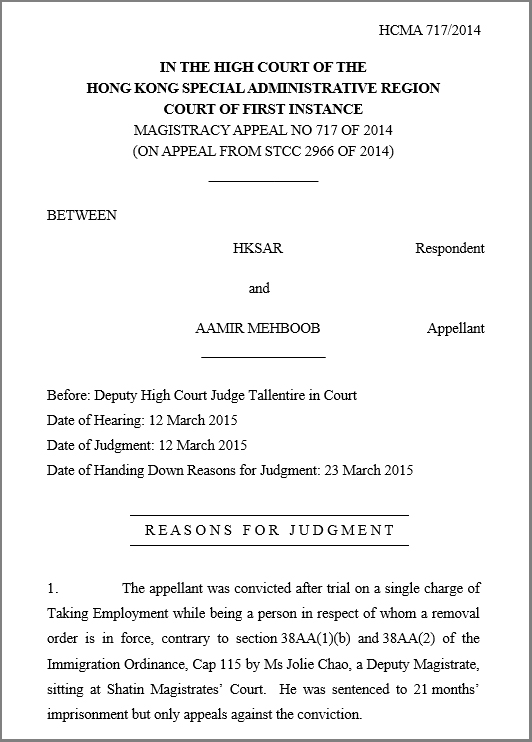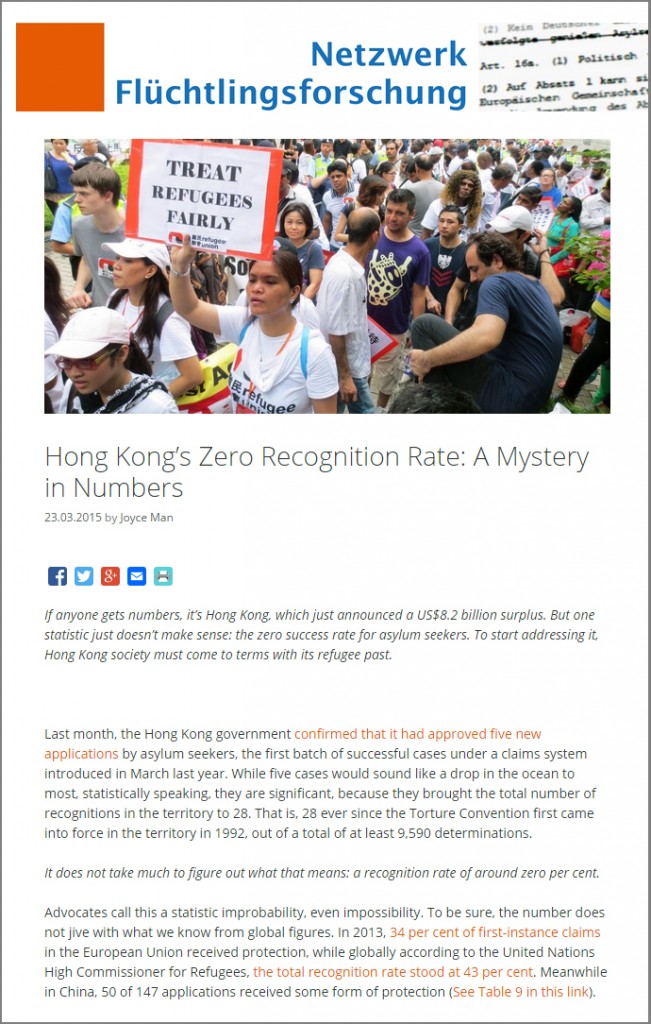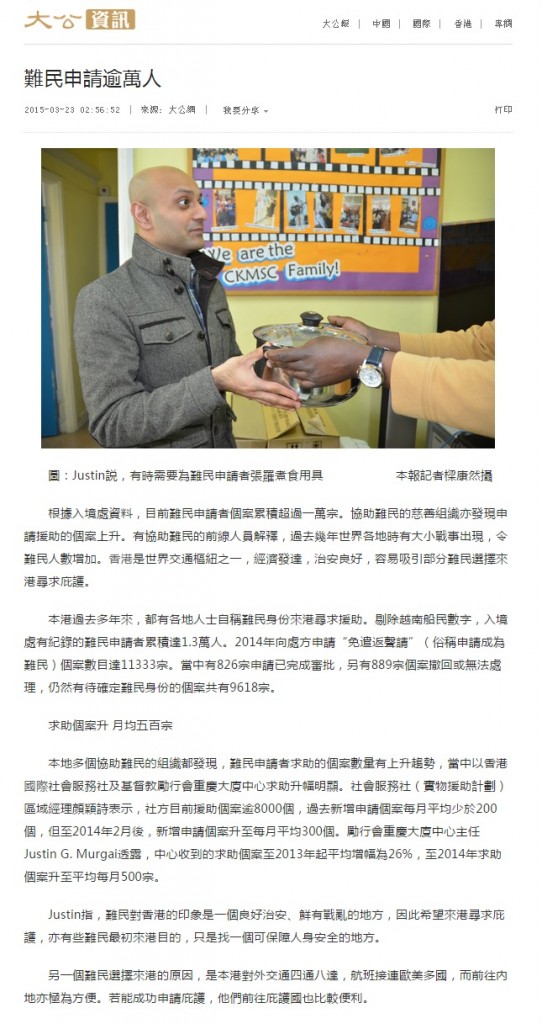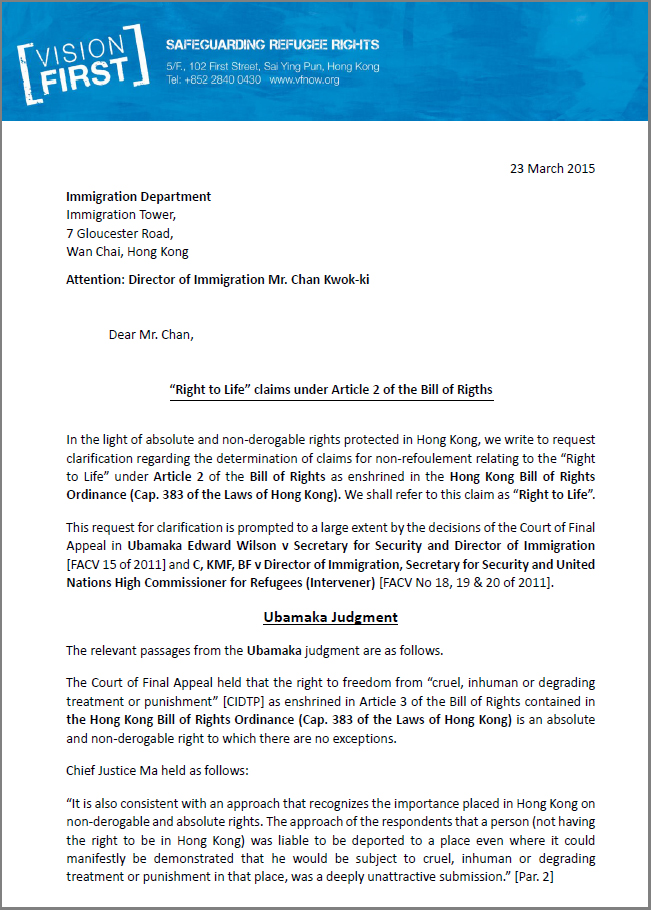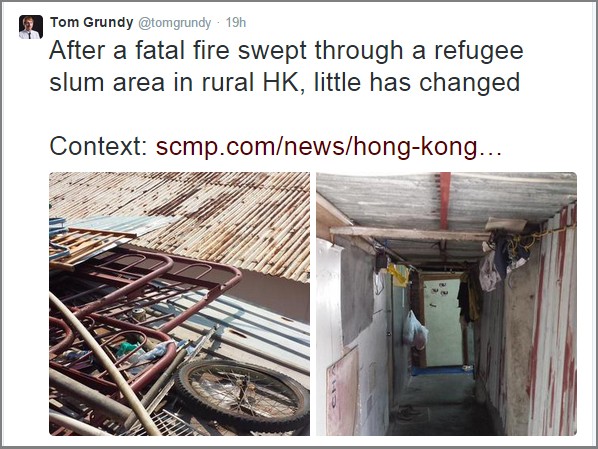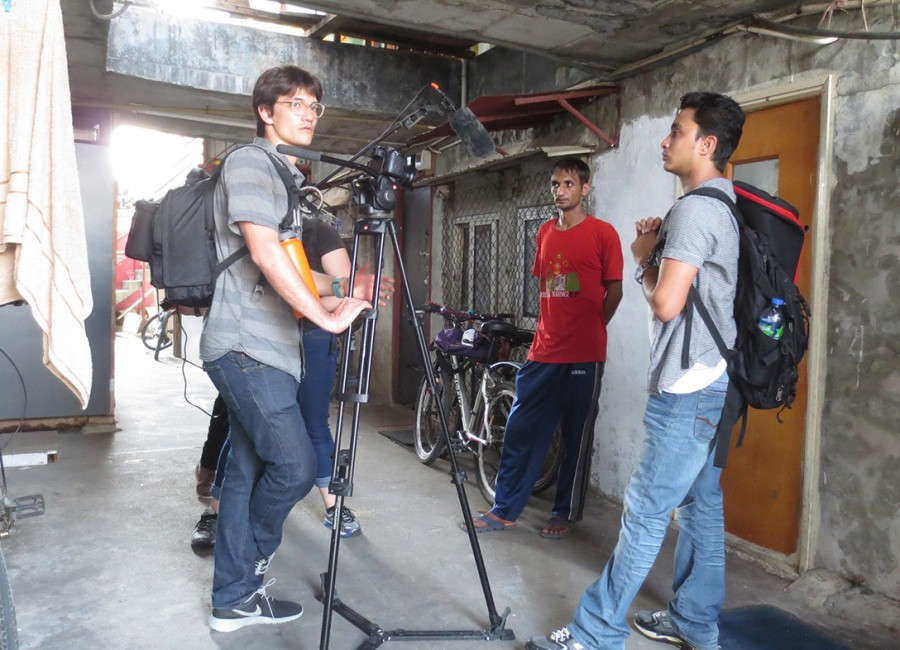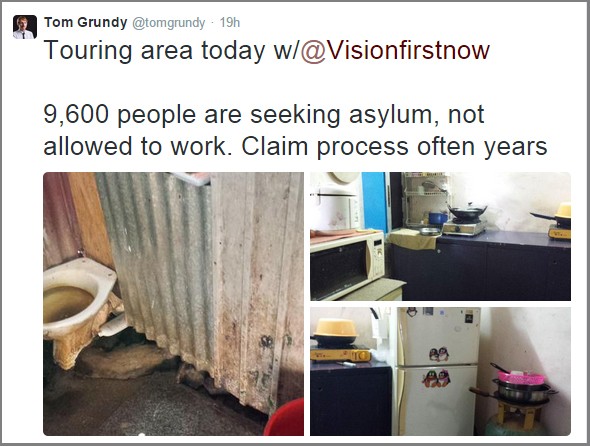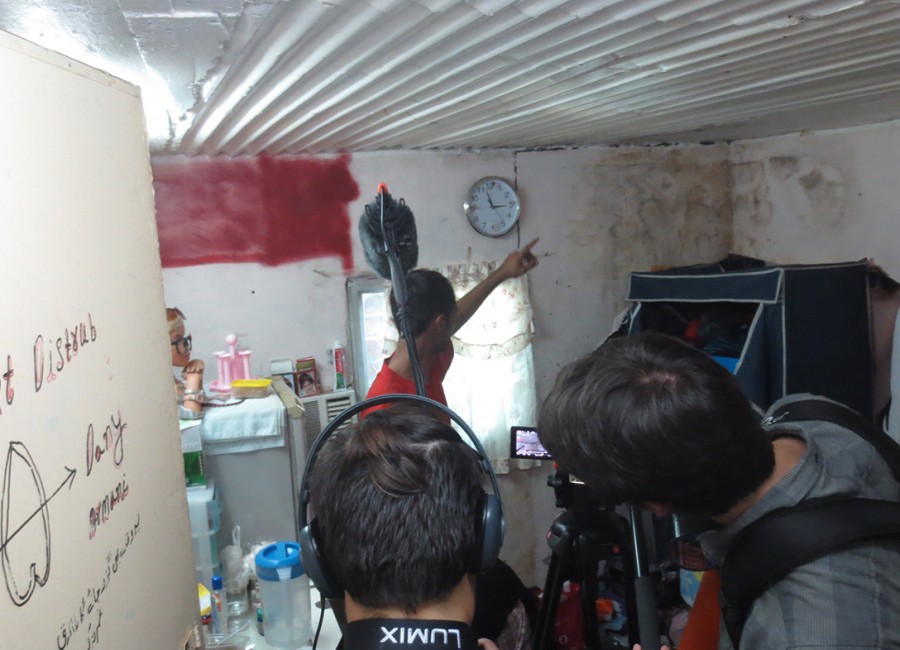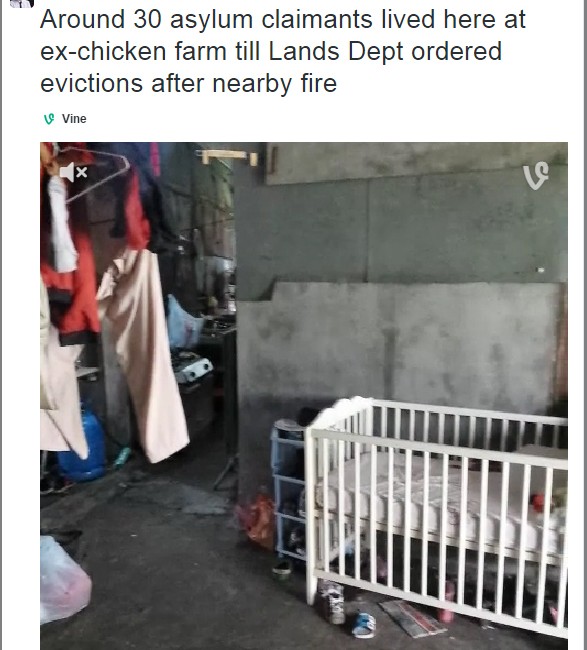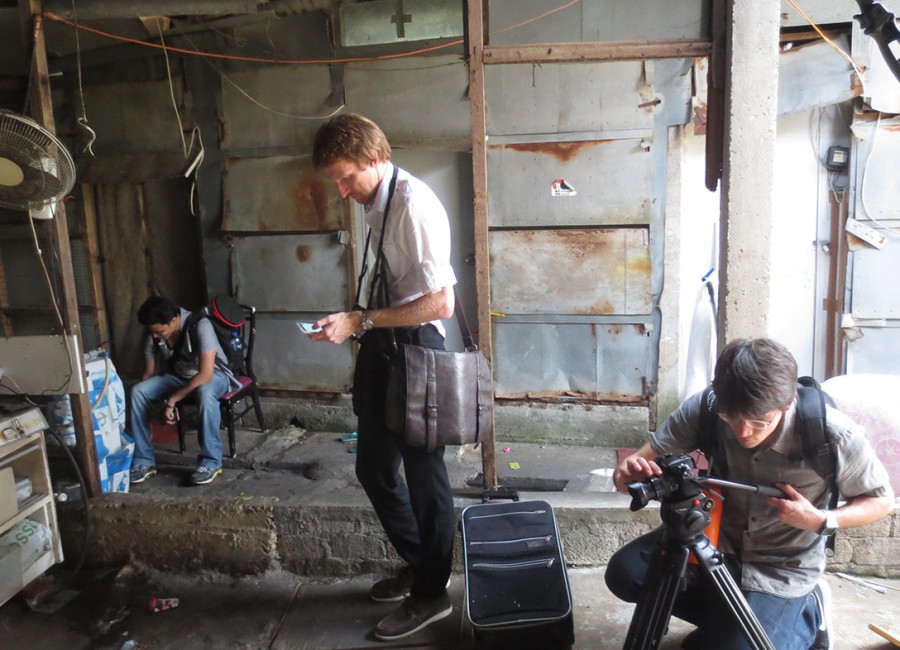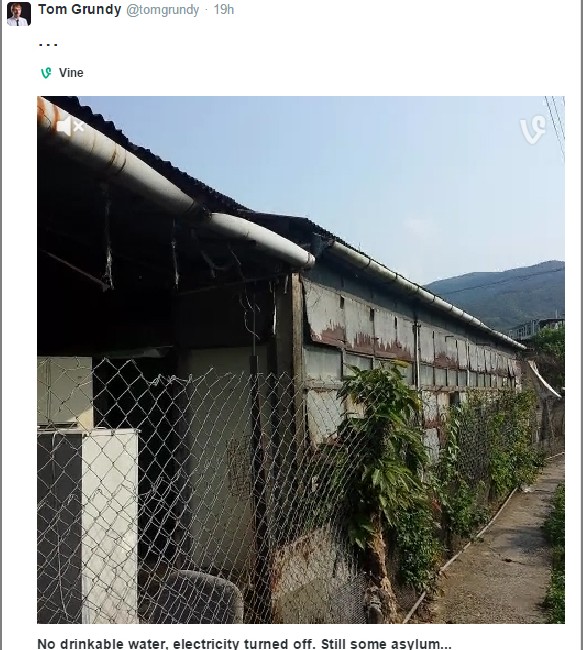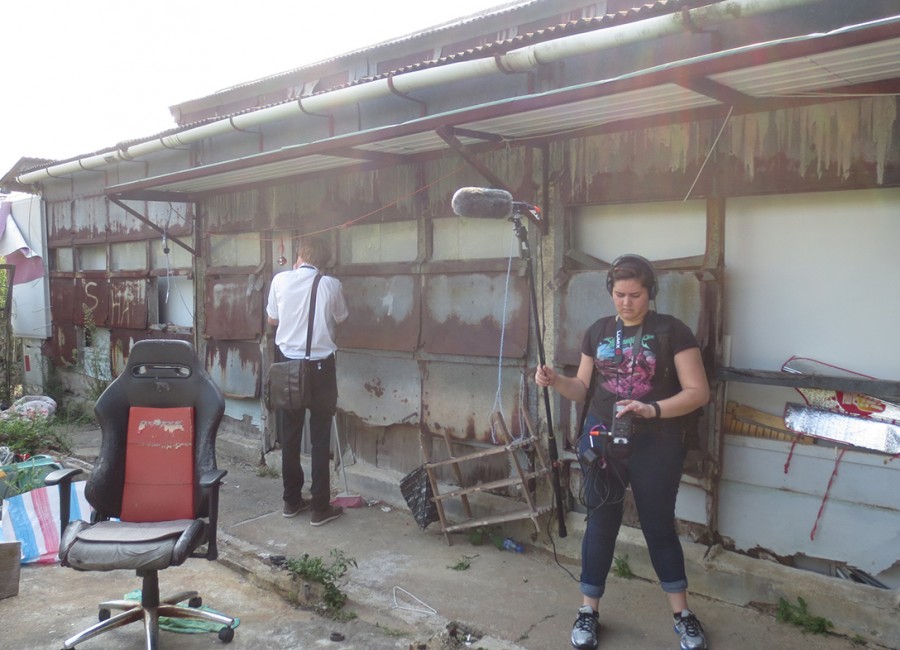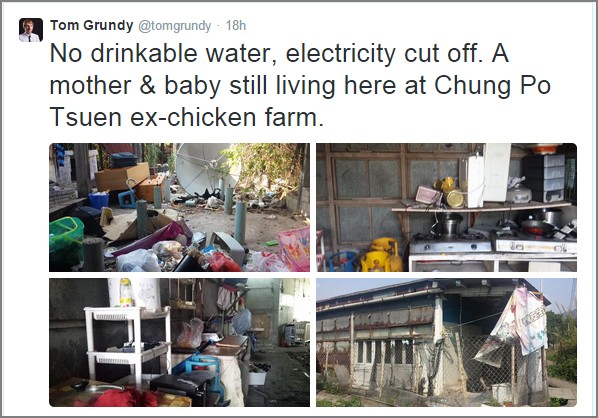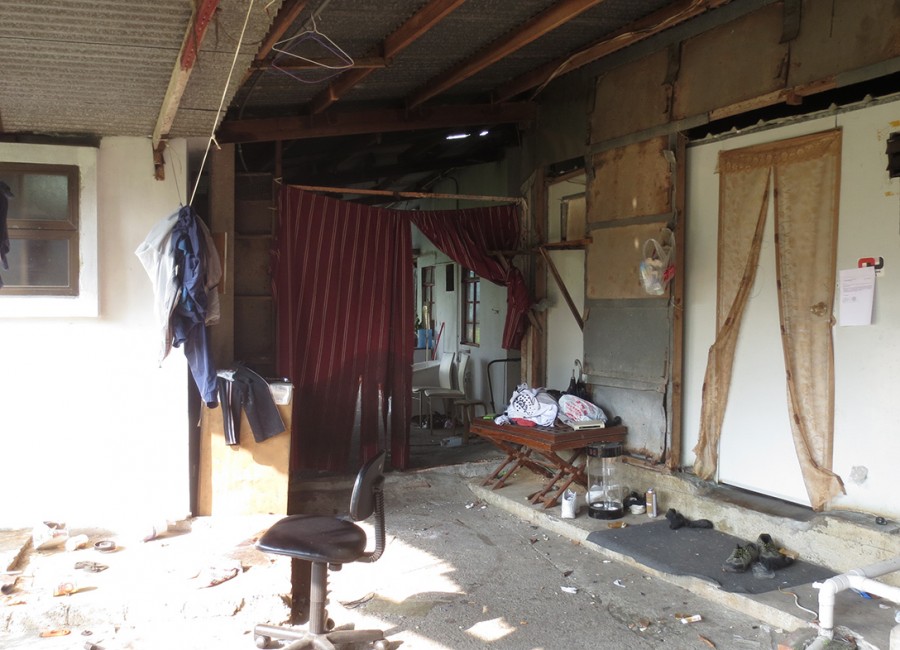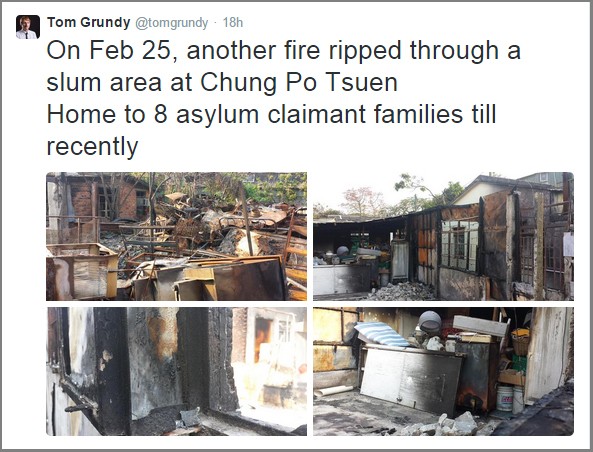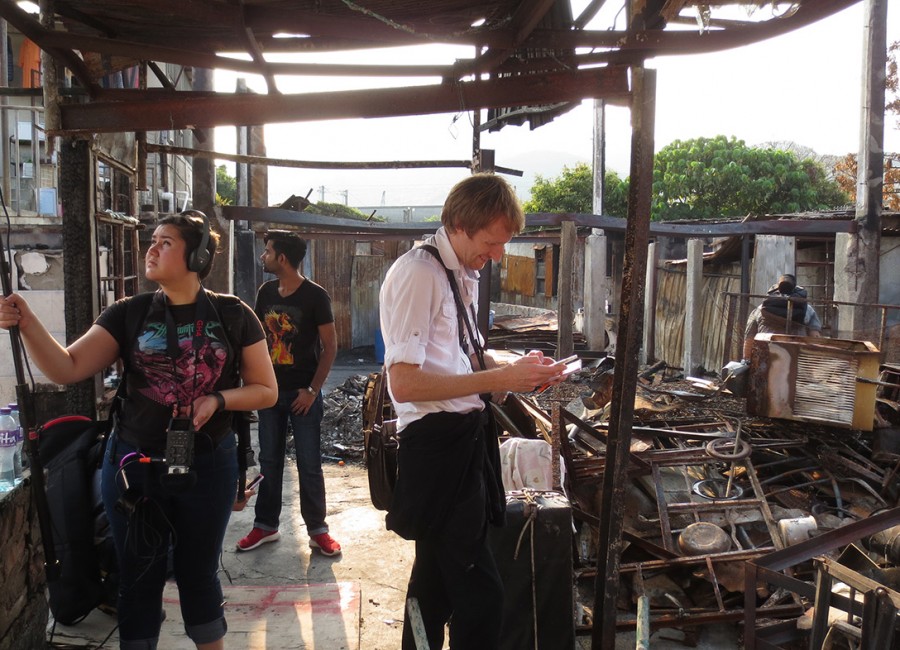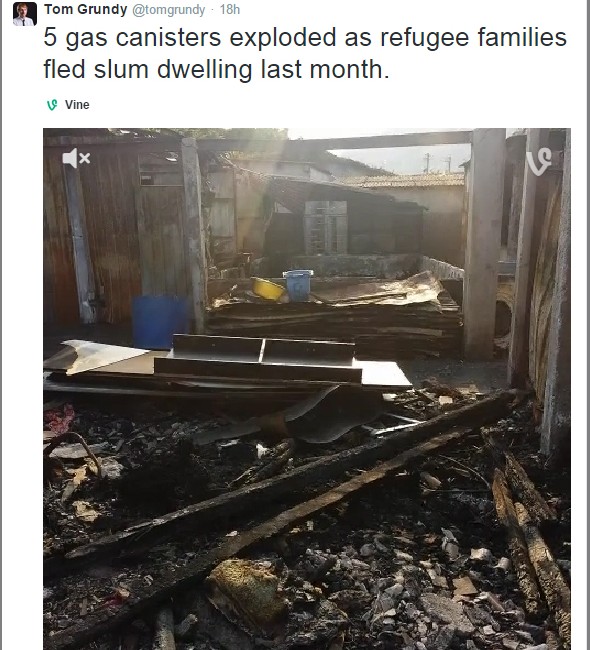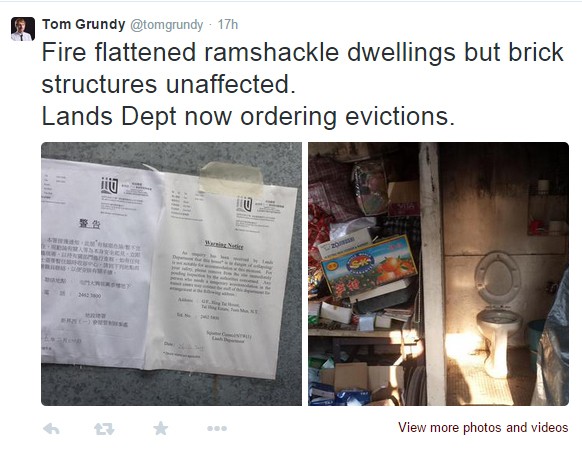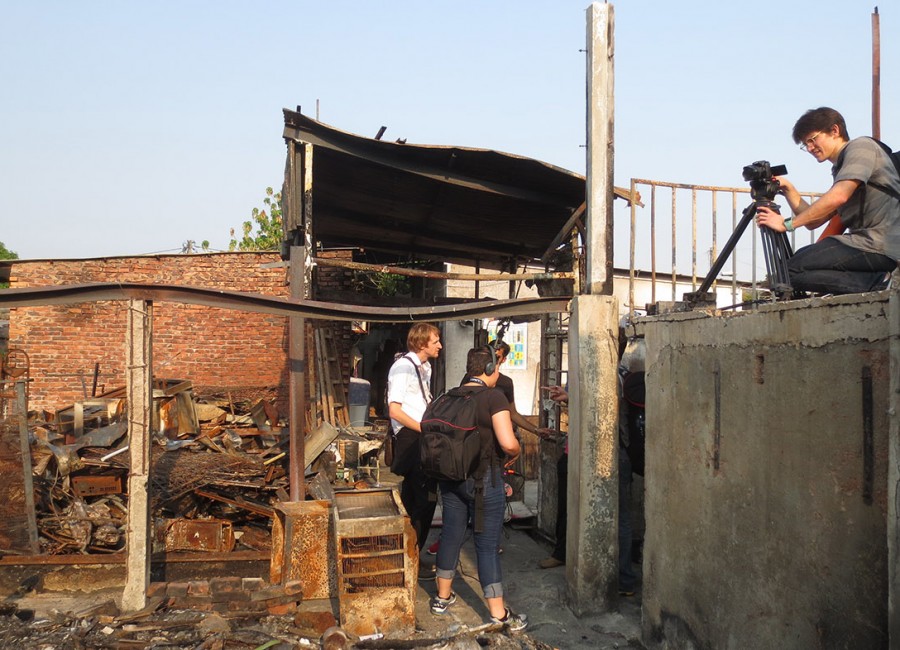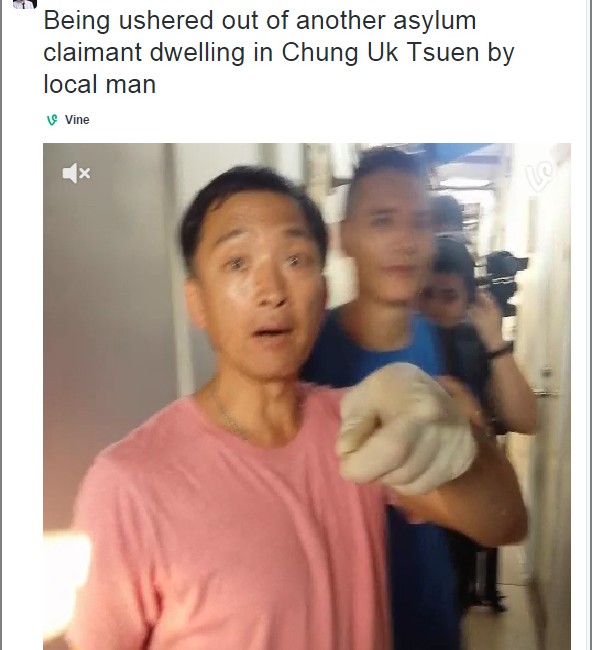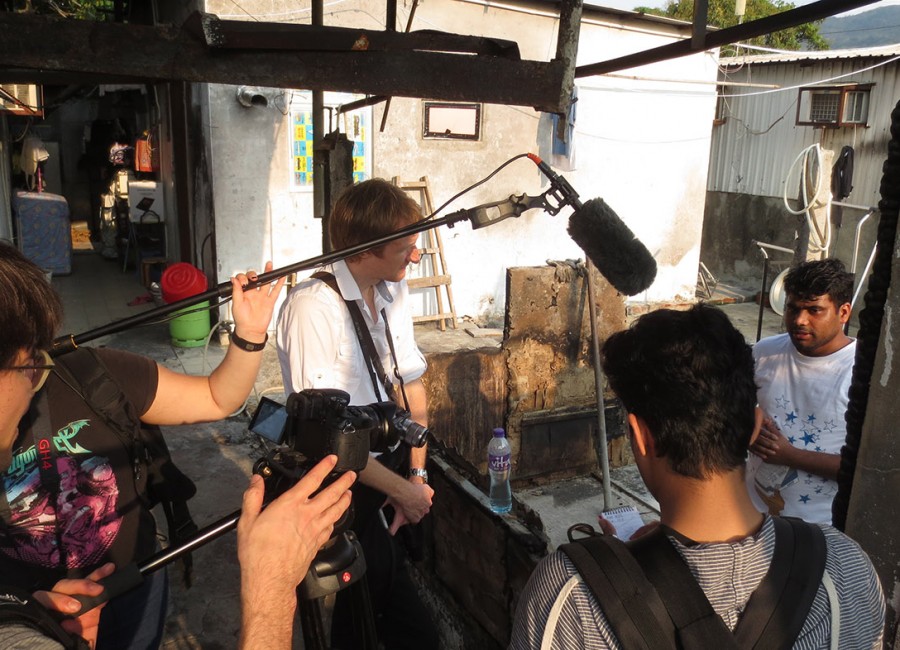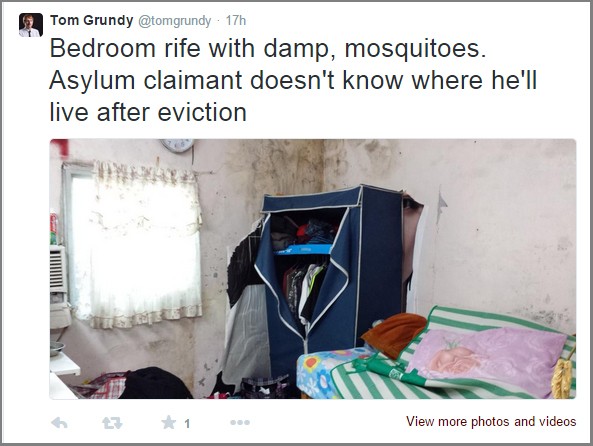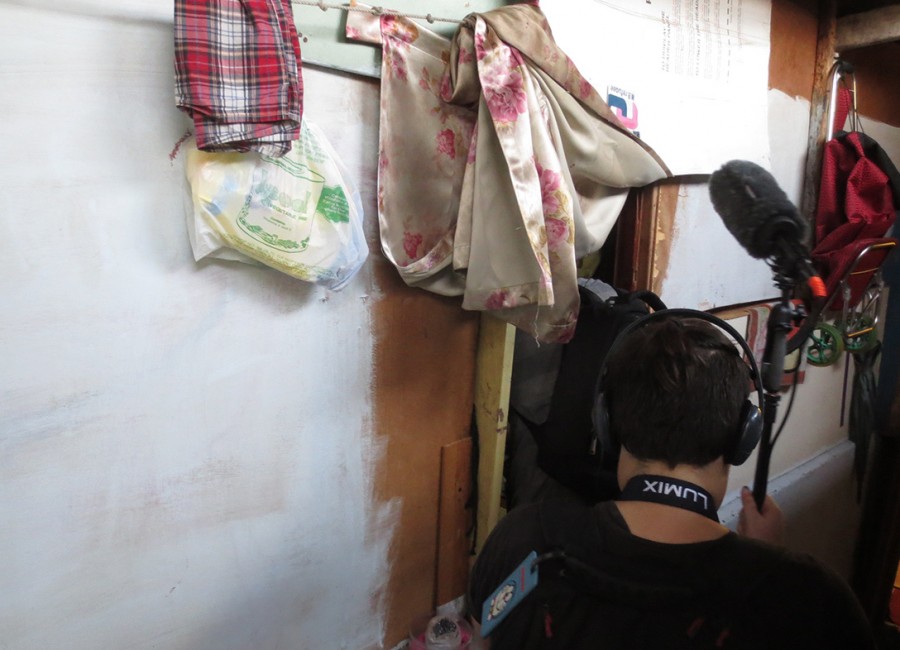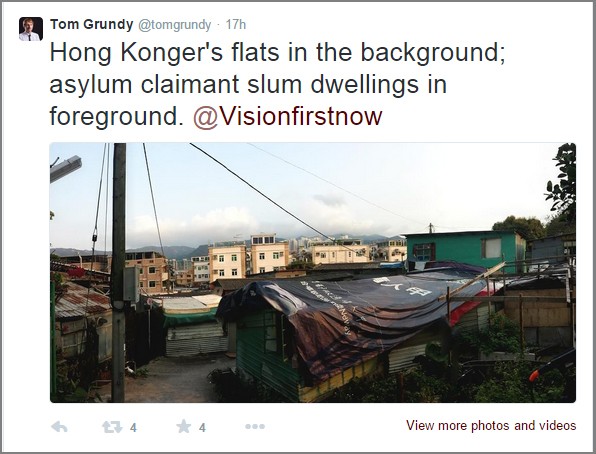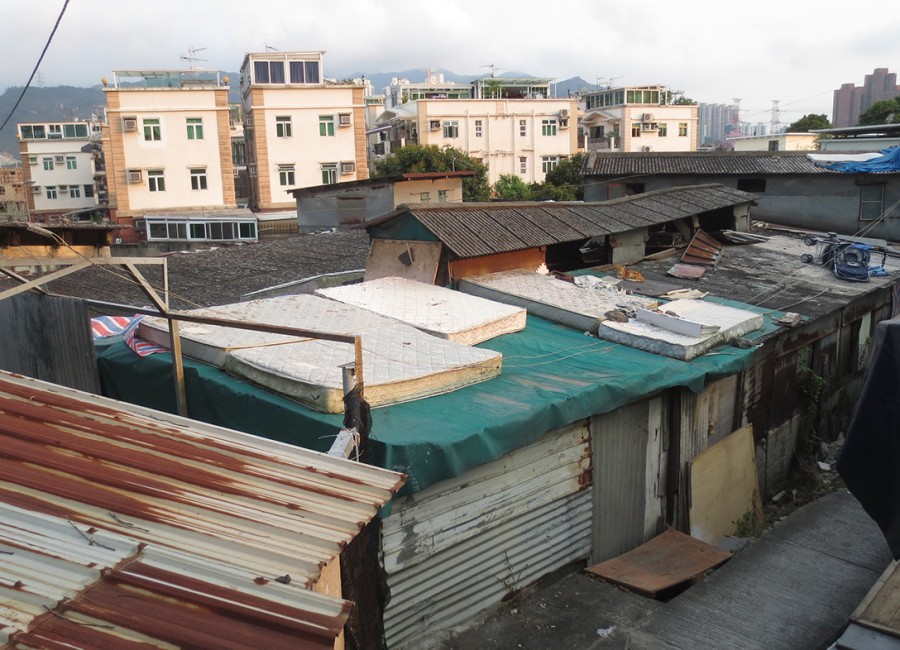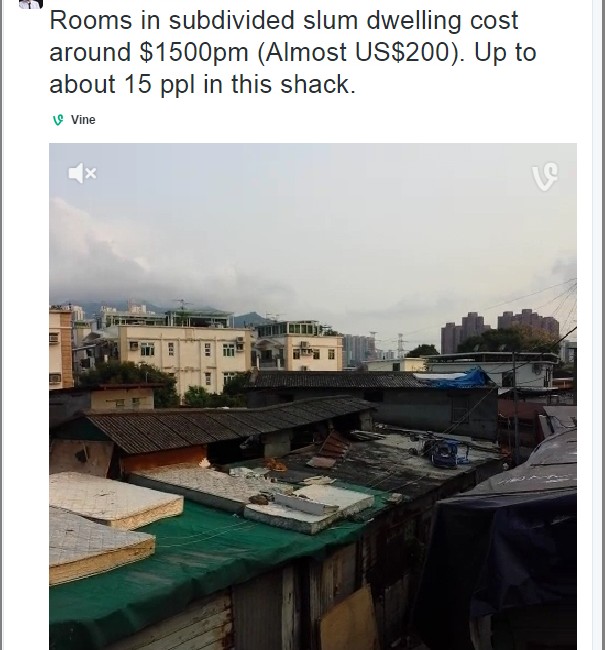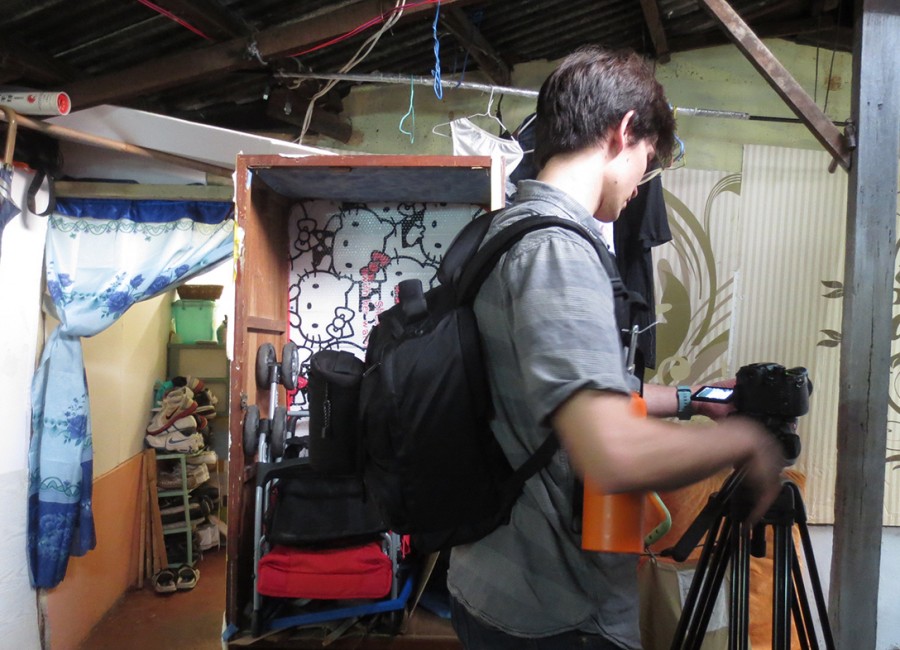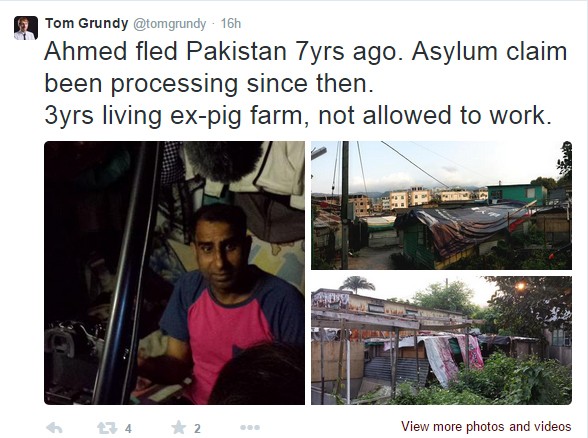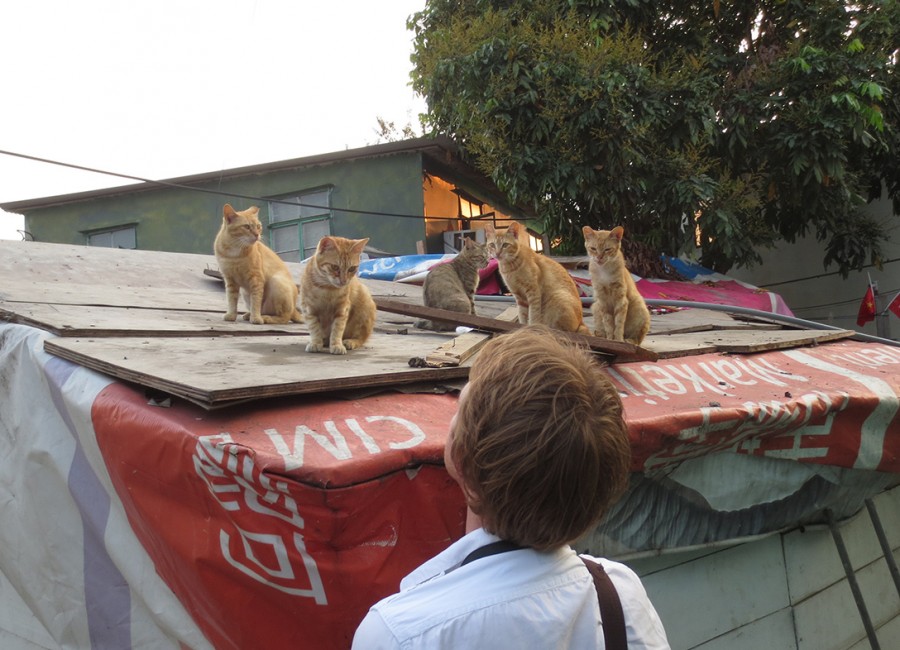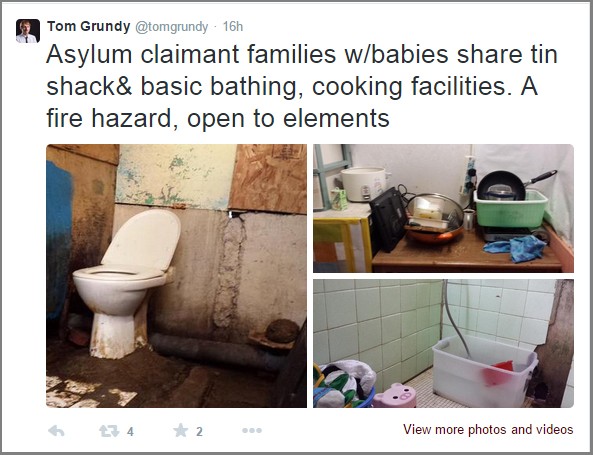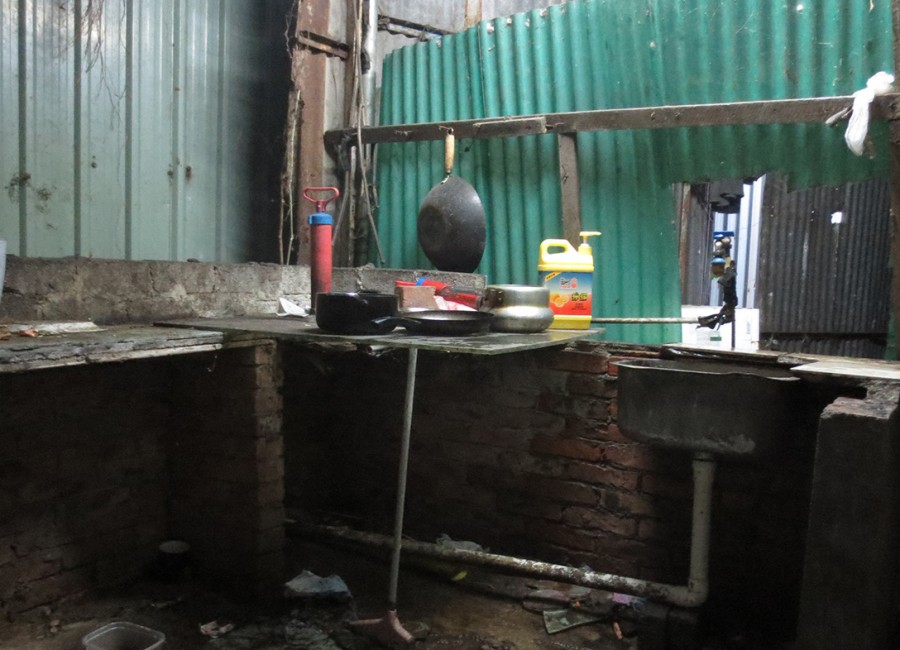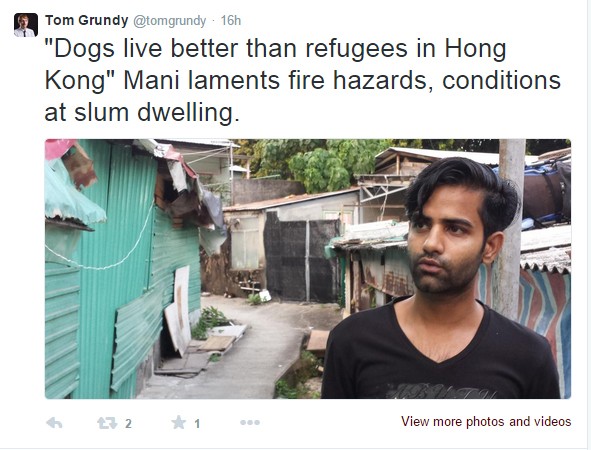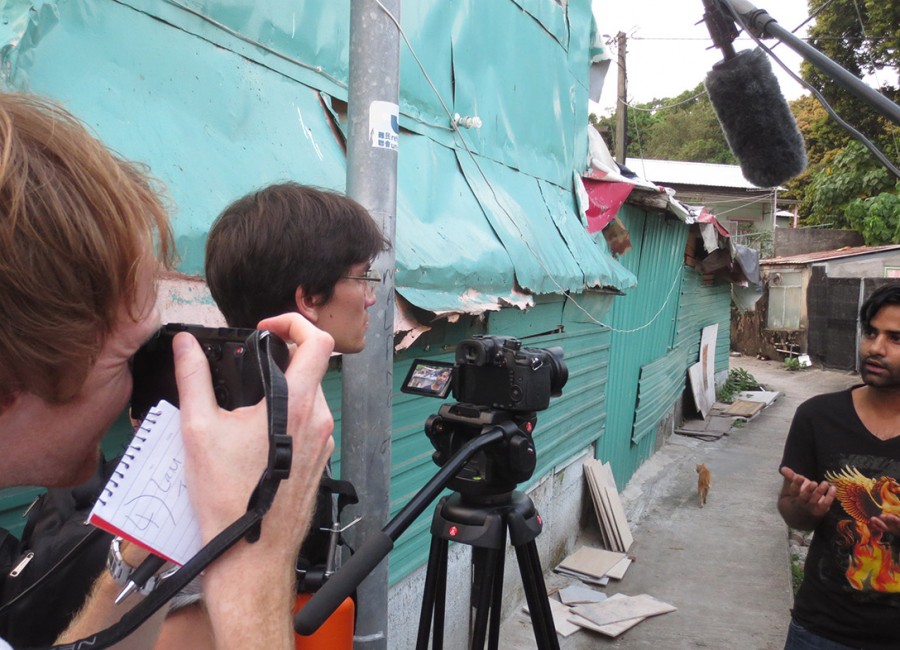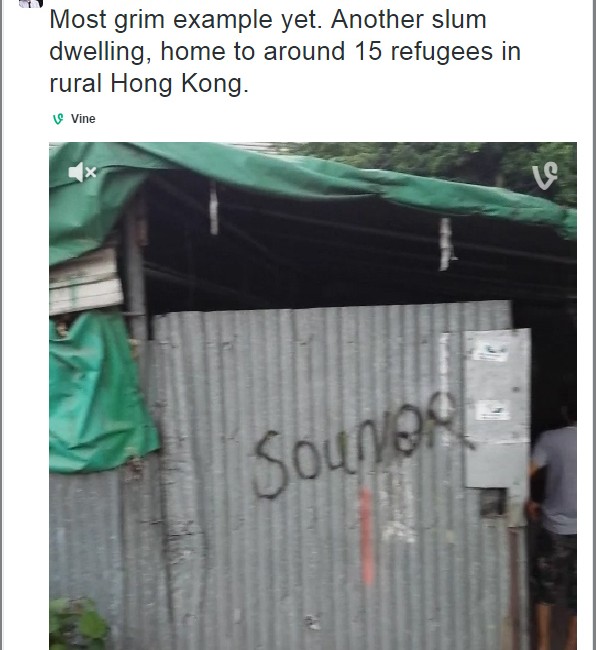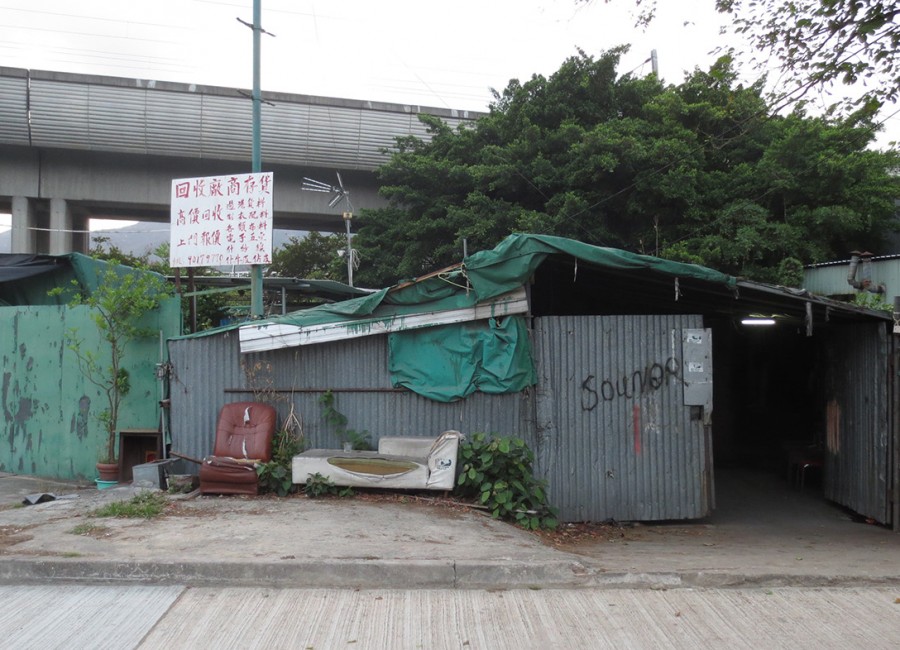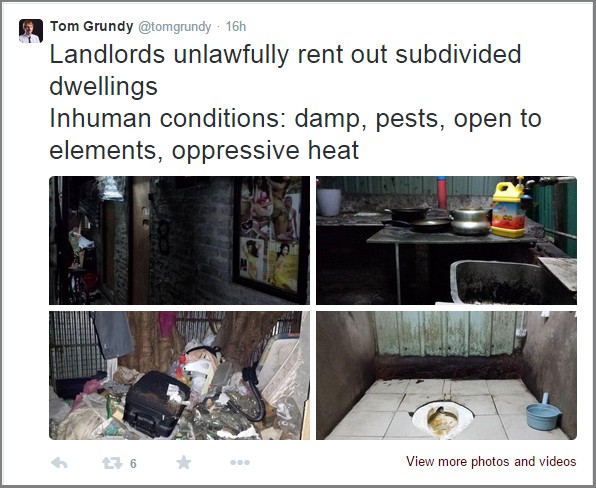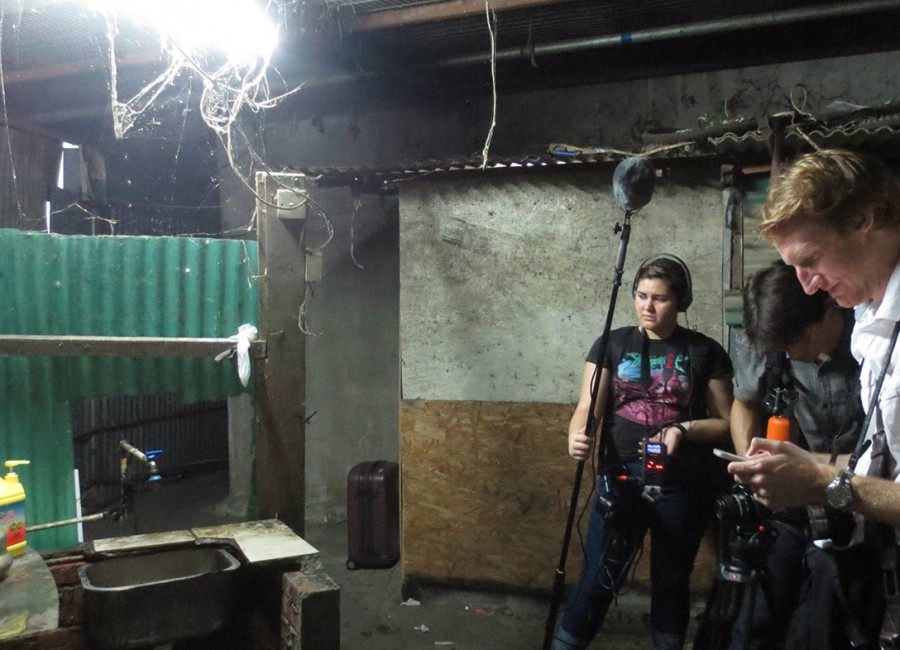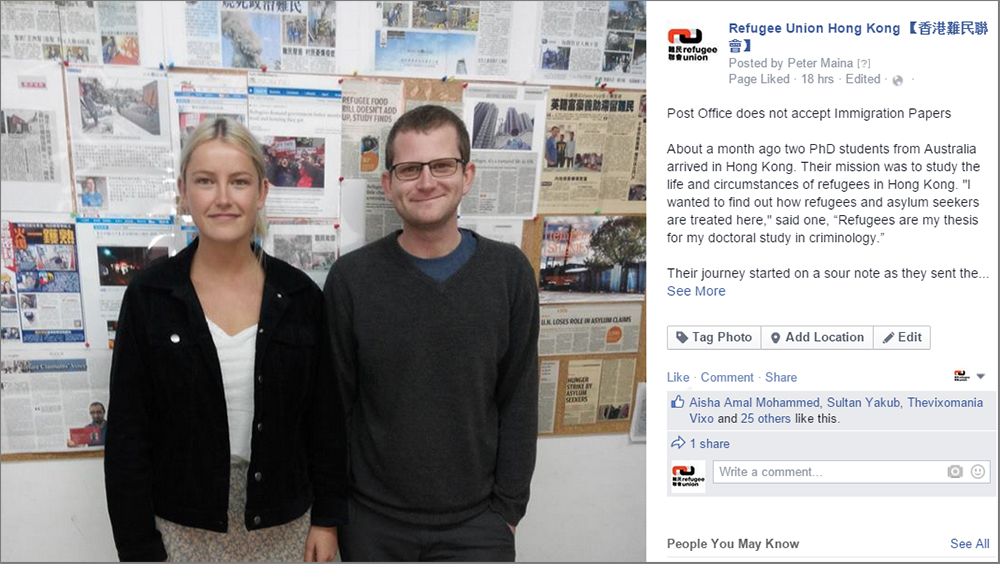Hong Kong’s Zero Recognition Rate: A Mystery in Numbers
Mar 24th, 2015 | Immigration, Media, Rejection | Comment
Director of Immigration violating Refugee Constitutional Rights inside CIC
Mar 24th, 2015 | Detention, Immigration, Rejection, VF Report | Comment
Vision First is alarmed at news from detainees in Castle Peak Bay Immigration Centre, Tuen Mun (CIC). It is reported that the Director of Immigration may have failed to respect the importance placed on the non-derogable and absolute “Right to Life”, as enshrined in the Hong Kong Bill of Rights Ordinance that is binding on all government authorities.
On 23 March 2015, Vision First wrote an open letter to the Director of Immigration, inquiring among other issues about particulars of the training of officers charged with processing “Right to Life” claims. The Court of Final Appeal held that the right to freedom from being arbitrarily deprived of life also applied to persons not having the right to be in Hong Kong, including refugees.
The right not to be arbitrarily deprived of life (i.e. extra-judicially killed) is fundamental and absolute. It is a universal human right that cannot be limited, suspended or restricted for any reason, by any person.
Vision First is disturbed by allegations detailed in an email we received from a Refugee Union member who recently visited a detainee. Extracts from the email are as follows:
- CIC Immigration is doing really bad things. Just I come out from there after visiting my friend there;
- He says he already sent the BOR 2 claim form to Kowloon Bay but until now no results;
- There are many people inside who already applied for (High Court) Judicial Reviews (of Immigration Notices of Decision) 6 to 7 months before but still inside;
- In CIC immigration officers denied to accept BOR 2;
- People are inside very upset and afraid;
- They don’t understand what to do;
- They says that if they send letters to anyone those letters are not going out from CIC.
Several refugees confirmed this information. The Director of Immigration may be acting unlawfully in the execution of removal and deportation orders that ought to be stayed when detainees file “Right to Life” claims?
These allegations only deteriorate the already precarious reputation of the Hong Kong Government in the field of human rights, suggesting an ostensible turn towards uncompromising obstinacy that certainly stands at odds with the city’s self-proclaimed liberal and welcoming urban lifestyle.
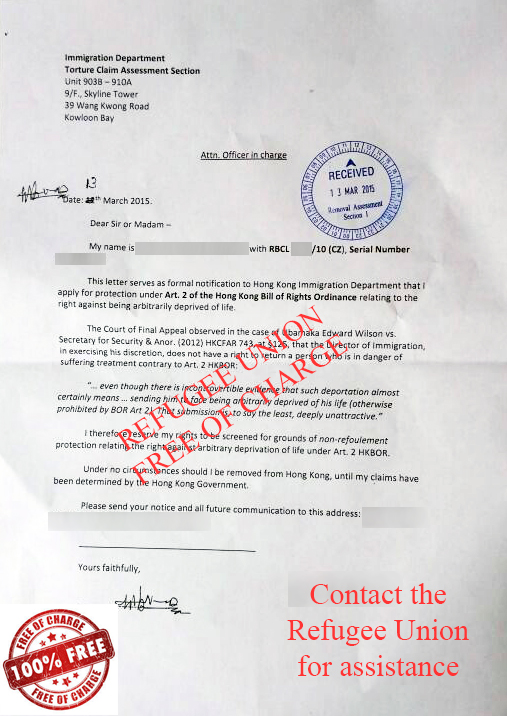
Open letter to Hong Kong Immigration on Right to Life claims
Mar 23rd, 2015 | Immigration, Legal, VF Opinion | Comment
Tom Grundy & Coconuts visit the refugee slums
Mar 23rd, 2015 | Food, Housing, Media | Comment
Tom Grundy is an independent multimedia journalist with 11k followers on Twitter and 350,000 unique visitors to his website Hong Wrong.
Coconuts Media is a local city website network that harnesses social media and video to amplify coverage of urban areas in Asia. Currently they reach over 3 million monthly unique visitors on Coconuts.co and average 20,000 to 30,000 views per video on their official Youtube partner channel Coconuts TV.
Vision First awaits their reports on what they witnessed on outreach with us in the refugee slums.
Hong Kong asylum system is in a shambles
Mar 20th, 2015 | Food, Housing, Immigration, Legal, VF Opinion, Welfare | Comment
The Unified Screening Mechanism may as well be said to have failed in keeping up with its promise of protection, remarked a senior lawyer at a Vision First meeting this month. He was of the opinion that the administration mismanaged the process to such an extent that fair-minded observers would not consider it a success, if not for rejecting 99.9% of asylum claims.
The big picture is alarming. USM was expected to finally process claimants, whose numbers hovered around 5000 for years. But in 2014 the number doubled to 10,000, with new claims lodged at more than 300 per month. This surge surprised the administration that expects a considerable rise in screening costs, welfare assistance and the publicly funded legal scheme.
The backlog of claims is expected to increase further as refugees becomes familiar with the “Right to life claim” (BOR 2) which requires that asylum bids be also assessed on grounds relating to Article 2 of the Hong Kong Bill of Rights Ordinance, which is binding on the Immigration Department.
From documentation acquired by Vision First and freely available on the LegCo website, it seems that rather than reviewing an asylum system, that seems to neither protect nor uphold refugee rights, the administration is considering fast-tracking screenings, affecting legal safeguards. However, placing departmental expediency and completion targets ahead of obligatory “high standards of fairness” will pave the way for extensive judicial reviews, warned the HKBA.
If the administration’s approach to screening and determination is cause for alarm, the welfare side is of little consolation. It should be pointed out that hundreds, if not thousands of claimants have been in limbo for years without adequate welfare or employment rights. Such unfair treatment inflicted unjustified hardship on already vulnerable persons who hoped to find sanctuary in Hong Kong.
Instead of protection, refugees experience rejection through countless difficulties that hamper their daily existence. It takes months to obtain assistance, during which time new arrivals are often left hungry and homeless, fending for themselves in the streets. “We signed the contract with ISS but cannot find a place for 3000$. Without a room ISS only provide dried food like biscuits, instant noodles and canned food!” lamented an African couple who has slept on a sofa-bed at Vision First for several weeks.
The mismanagement of food rations continues despite refugees vociferously protesting for more than a year. There might be a widening rift between the SWD and ISS-HK that exposes a communication problem, to put it gently, relating to millions of dollars in food allowances that failed to reach the plates of destitute and hungry refugees. “Where is the remaining money” questioned Cable TV.
The 69 refugee slums exposed by Vision First are emblematic of the faltering asylum system. As a matter of fairness and humanity, it is reasonable to expect that the slums be wound down gradually without mass evictions that cause preventable homelessness. To the contrary, the same indifference to the wellbeing of refugees manifested in the establishment of slums, is blatantly obvious in their abrupt closure without offering basic, functional and safe accommodation.
A distraught refugee recently made homeless exclaimed, “I waited seven years for Immigration to [determine] my case. Still no answer. Now I have no place to stay and nowhere I can rent for 1500$. Hong Kong wants all refugees to go away! If we could go to another country we would leave … but how?”
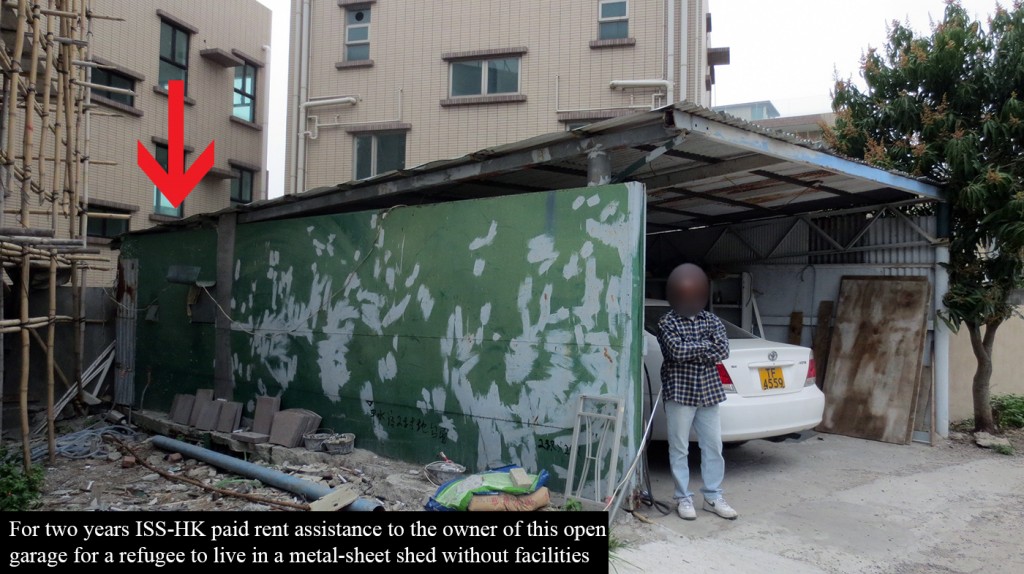
Hong Kong Post Office does not accept Immigration Recognizance Papers
Mar 19th, 2015 | Immigration, Personal Experiences, Refugee Community | Comment
About a month ago two master students from Australia arrived in Hong Kong. Their mission was to study the life and circumstances of refugees in Hong Kong. “I want to find out how refugees and asylum seekers are treated here,” said one, “Refugees are my thesis for my doctoral study in criminology.”
Their journey started on a sour note after they sent a parcel to the Refugee Union. When it arrived, the Post Office issued a note advising to collect the parcel. The following morning at the Post Office a Refugee Union member produced his Identity Document to claim the parcel, but the clerk refused to accept his Recognizance Paper as a proof of Identity.
She remarked, “This is not a Hong Kong ID. We cannot give you this parcel as we don’t know you. I don’t know who you are and I don’t know what this document it.” It was very frustrating. We presented the Refugee Union membership card, but she was adamant that a Hong Kong ID card was required for collection. She called a senior who confirmed that either a Hong Kong ID card or passport was required, or else they would send the mail back to the sender.
We were unable to claim a parcel at a Hong Kong Government office by producing a document issued by Hong Kong Government after our passport were confiscated! Back at our desk we emailed the sender and explained the predicaments. They thought it bizarre that refugees hold a document that is meant to prove identity, but is not freely accepted in Hong Kong.
The Recognizance Paper with its archaic, imposing A4-size never goes unnoticed. It is meant to embarrass and demean refugees as an undesirable and unwelcome lot discriminated by the denial of legal status, even when Immigration takes a decade to determine claims. The classification of the unwanted starts with their criminalization – overstayer, outlaw and convict!
Shouldn’t the Post Office be briefed on and instructed to accept Recognizance Papers? Today there are over 10,000 such documents in circulation and refugees might need to produce them at one of the 129 post offices, where ignorant officers look aghast at bearers, “What is that? I don’t know what this is?”
The students found this story hard to believe, “In Australia we do not treat refugees like that. They enjoy their rights as human beings and live with dignity as everybody else. It’s a big shame what you go through. It is even doubtful that these arrangements are beneficial to Hong Kong in the long-term.”
An outsider’s perspective: Discriminatory treatment of refugees in Hong Kong
Mar 17th, 2015 | Housing, Immigration, Personal Experiences | Comment
Written by Christopher McNulty
Before coming to Hong Kong (HK) I tried to research the problems refugees and asylum seekers face in HK but was not able to find much documented on government websites. I was only really able to find media articles that had reported on HK refugees. When I arrived in HK the city is quite beautiful and lively with high rise buildings, restaurants on every corner and excellent public transport.
On my first day I attended the Vision First (VF) office. VF is a not for profit organisation trying to change the government’s ideology on how to deal with refugees locally. VF has well documented multiple cases of refugee housing that is well below humane standards and assists with human rights issues that occur to refugees in HK. An organisation which works with VF is called the Refugee Union (RU). The RU is a unified group of refugees fighting for a better quality of life for all refugees and their families.
On the same day I attended one of the fortnightly RU meetings. Refugees were discussing how they want to be able to work, have a good quality of life, and lastly, ensure their children are given every opportunity to succeed in life. The refugees explained that even after the government deems an individual as a legitimate refugee, they have to hand in their passport, they are not allowed to work, and will receive social welfare provided by the HK government. I did not believe what I was hearing. Asylum seekers escape their host countries due to the threat or fear of persecution and come to countries and regions such as HK to have a better life, only to find that there might not be great living conditions in HK. It is against the law to work in Hong Kong if you are a refugee (Chiu, 2012). Why wouldn’t the HK government want refugees to become permanent residence and contribute to the community instead of continuing the cycle of social welfare payments?
As the weeks went on I heard different stories of the reasons why refugees sought refuge in HK, from risk of persecution, to the risk of death in their country. A common theme seemed to emerged, that refugees saw HK was a great culturally diverse, rich destination that would be able to give refugees a second chance in life and a great place to raise their children while escaping persecution.
I think the most challenging part of my time in HK was visiting the slums where refugees were living in the New Territories. These houses (if they can be called that) are in no way liveable. Some huts are brick interior but then have metal sheeting to extend the living quarters. Other shacks are made entirely of wood and advertising boards. The images below show the primitive kitchen area where the occupants are trying to defrost a chicken and the toilet area nearby with wooden timber panels with no knobs utilised as a door. The lighting within the complex is portable lighting through visible wiring. The family had a baby boy and all I could think was how much this family would be trying to give every opportunity in life to their child and this is the living conditions they have to deal with.
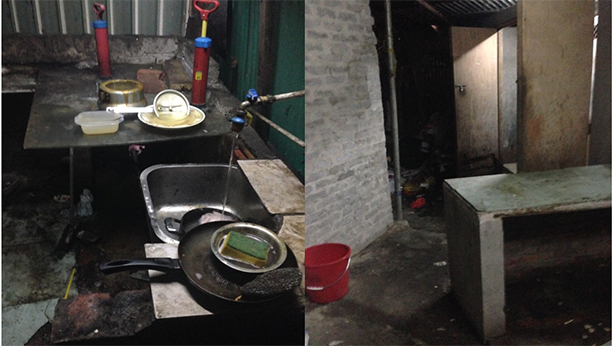
The next house I visited was the shack that had burnt down the week before. Looking at the structure of the housing around the refugee home that burnt down, they were bricked houses which had minimum damage from the flames. Residents lived there. Looking at the burnt pile of possessions, it was clear that the housing was primarily made up of metal sheeting which is weak and had no chance of withstanding the blaze.
It was so sad seeing refugee families’ possessions destroyed in a fire. As refugees don’t receive appliances and clothing through the government, they have to find these items by going through the garbage and from charities. This means this fire would have destroyed all these families’ items which are hard to replace.
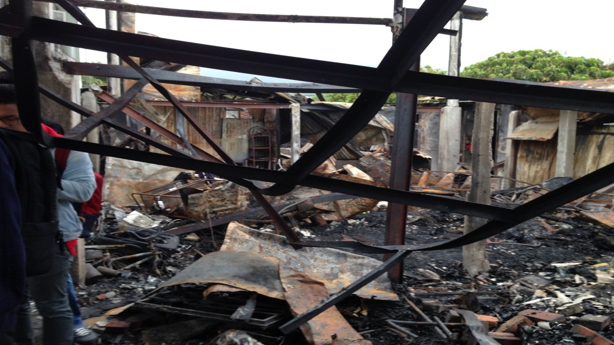
During my last week in HK I attended another meeting of the RU. They had just received notification from the Social Welfare Department (SWD) that they have investigated the matters raised by the RU, and advised the system is working correctly and there is no need to change. After hearing the response from SWD, I honestly believe there is a major gap between what SWD believes is occurring compared to what is really happening. From the houses I saw they are not liveable and no place to raise a family. Again, during the meeting, I heard numerous refugees speak about how they want to work and contribute to HK. These are motivated people who want to work but are not being given the chance. There is a continuous cycle occurring of refugees in HK because as refugees continue to come to HK to escape persecution, they become dependent on social welfare. As refugees have children they become dependent on social welfare, and their children, and so on. If laws are not changed, refugees will always be dependent on the government if not allowed to work.
In Australia once an asylum seeker is deemed a legitimate refugee, they have the right to permanent residency, social welfare, and most importantly the right to work (Department of Human Services, 2014). This means, in Australia once the government has deemed an individual as a legitimate refugee, they are entitled to become Australian citizens, and they are entitled to social welfare, including public housing and schooling. And most importantly, they are entitled to work. In comparison to HK, there are many differences between how both HK and Australia deal with refugees.
In conclusion, my time in HK has been quite an eye opener. The problems with refugees can be seen as well hidden from the HK public, including the international public. In saying that, over the last few years as the media have reported more on the problems faced by asylum seekers, the public have become more aware. Hopefully as more media attention occurs in the future, this will hopefully influence the public to influence the HK government to rethink the way they approach refugee policy in HK.
Refugee Union successfully lodges BOR 2 claims with Immigration Department
Mar 16th, 2015 | Immigration, Legal, Refugee Community | Comment



